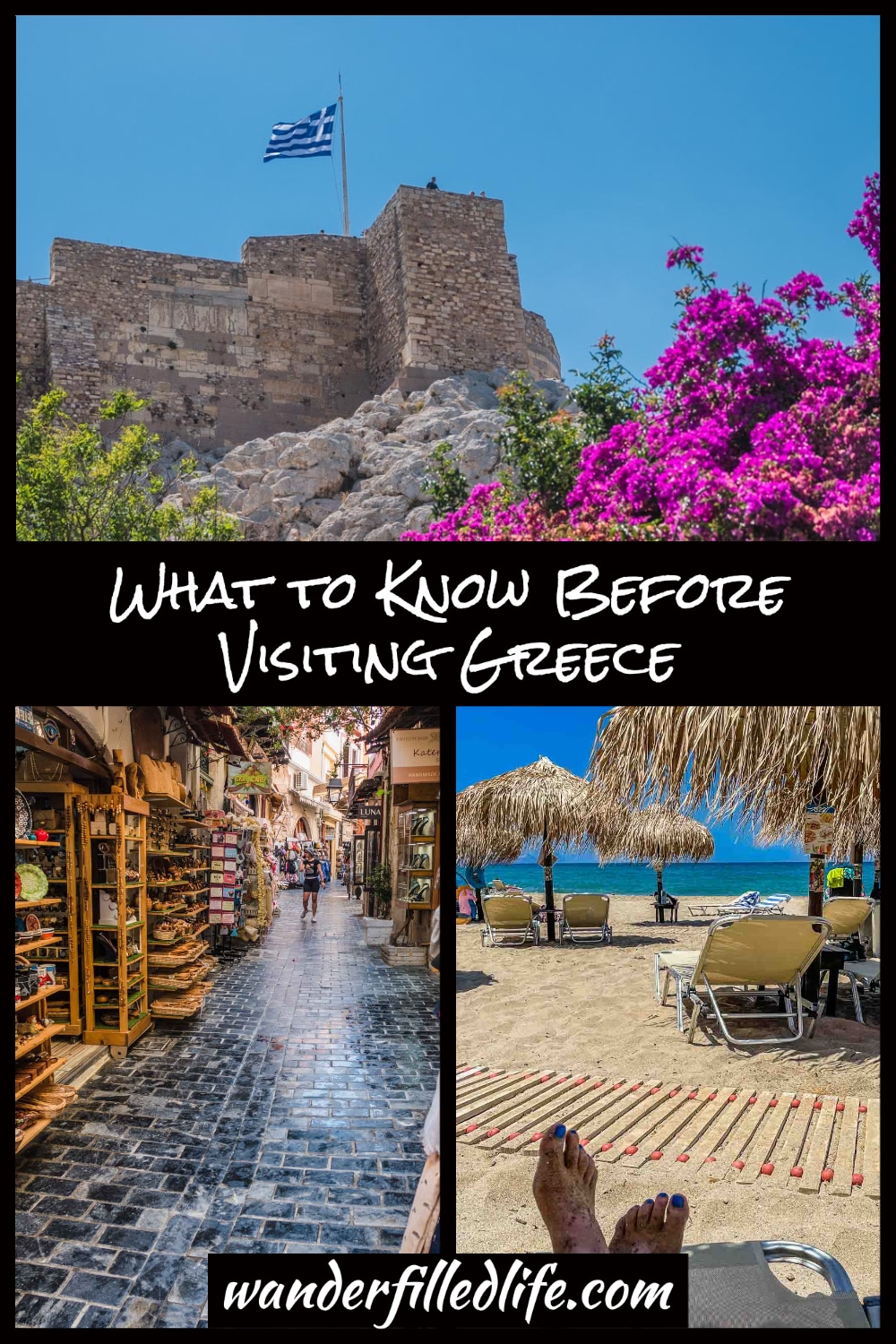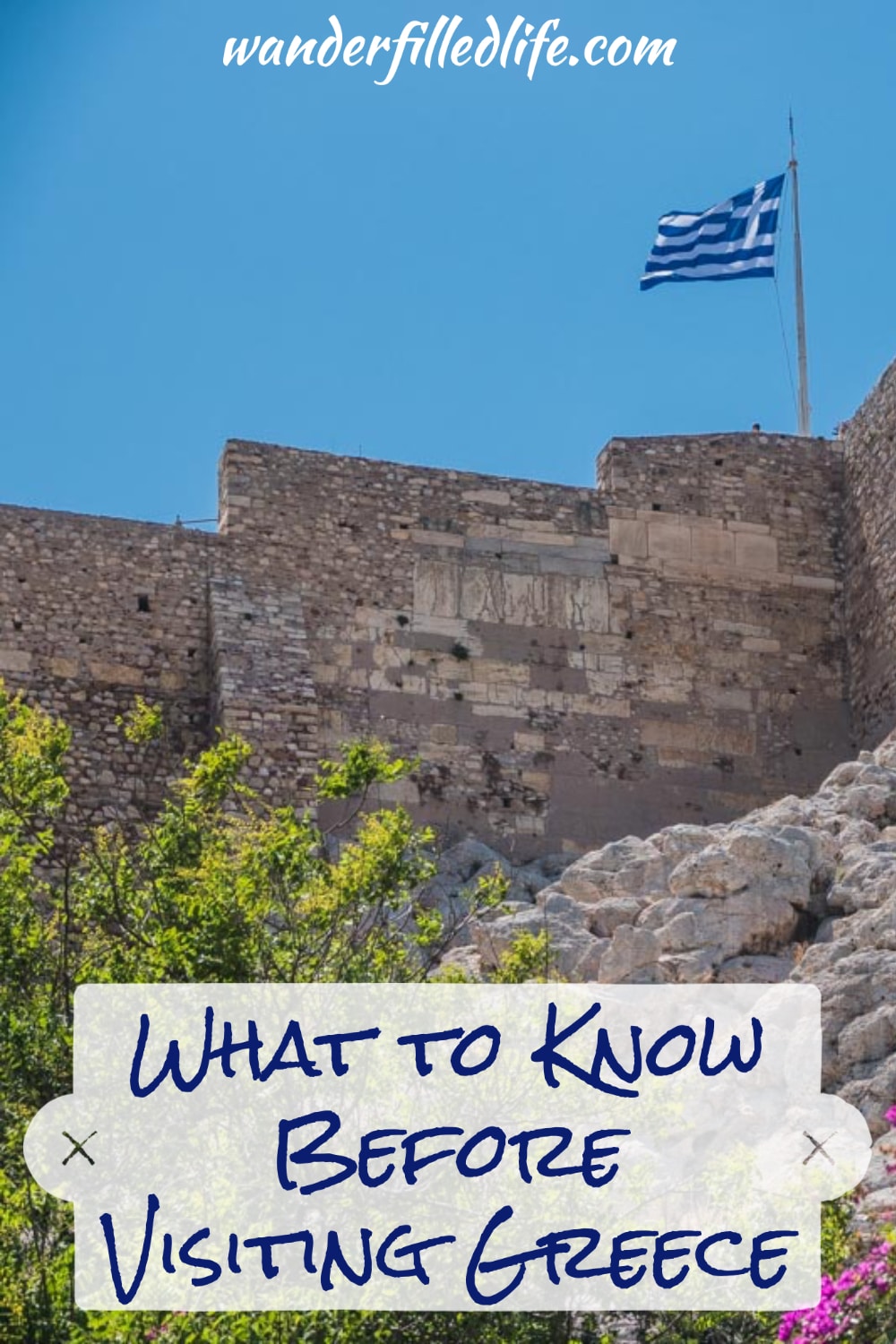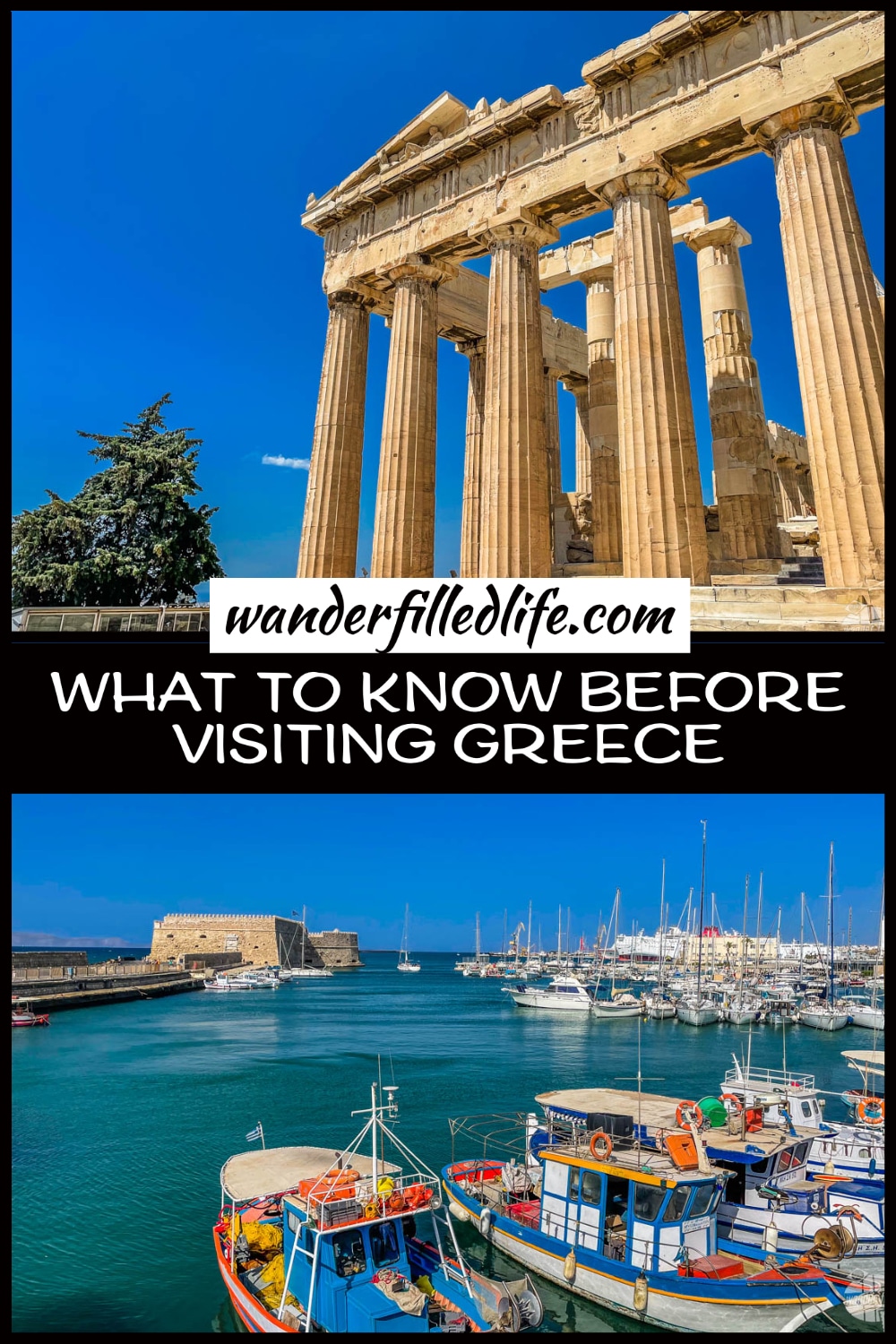Last Updated on February 24, 2024 by Grant
With sunny beaches, ancient history, and rich cultural heritage, Greece is a popular tourist destination for good reason. Our 10-day-long visit to Athens and Crete was long enough to enjoy a variety of Greek experiences but definitely left us longing to return for more! While it is a relatively easy country for Americans to visit, there are a few things you should know before traveling to Greece to make your visit a success.
Before traveling, I almost always spend an extensive amount of time researching our destination. I definitely did not do that before our trip to Greece. That’s because we went as chaperones for a school trip with EF Tours. Since everything was already planned and we knew we’d have a tour guide the entire time, I didn’t need to do much planning myself.
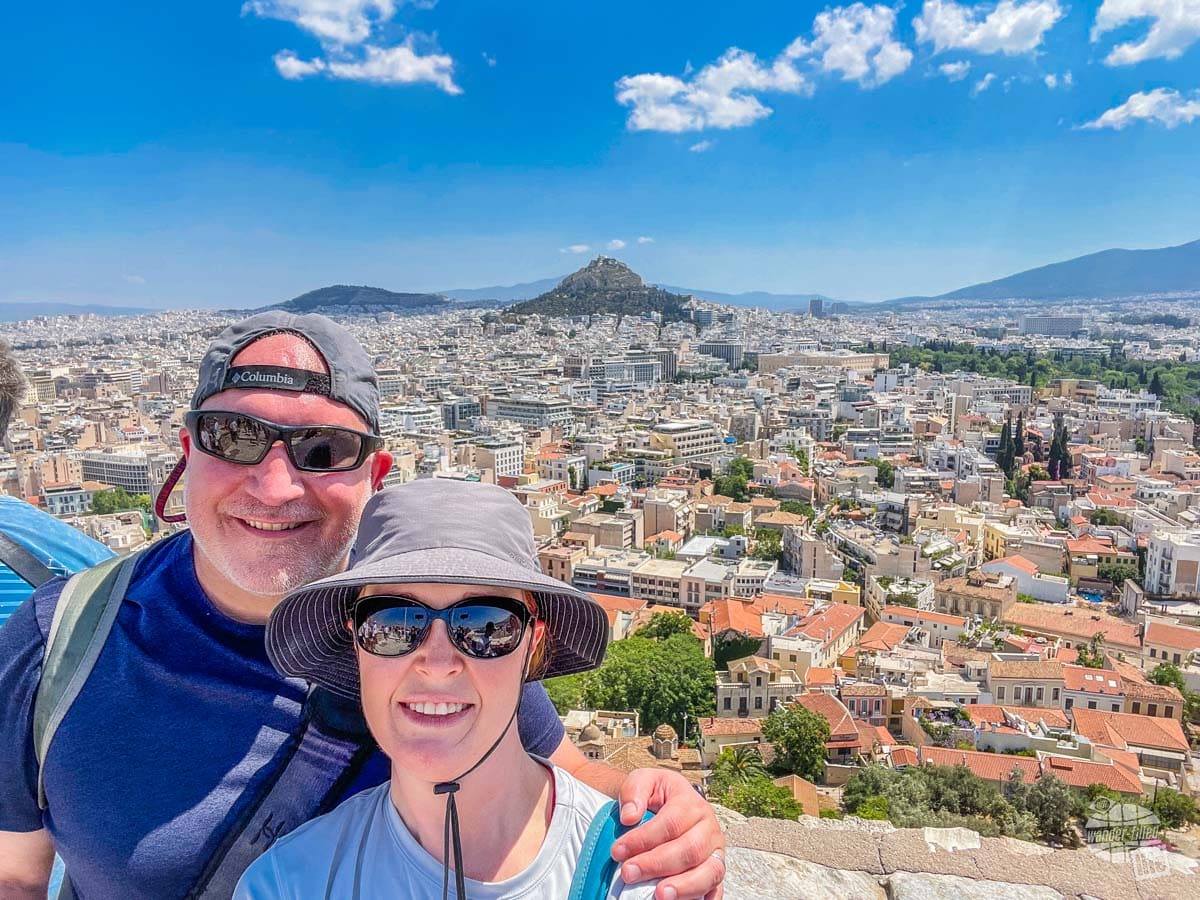
Yes, that was nice. But it also left me a little surprised at a few things. That’s not necessarily bad, it just was a bit of a different experience for me. If you’re like me and want to know what to expect before reaching your destination, here are a few things you should know before visiting Greece.
(Disclaimer: When we link to places where you can buy our stuff or places we stayed, we are using special codes that earn us commissions on the sales at no additional cost to you. Please see our Review Policy for more information.)
Speaking English in Greece
English is very widely spoken in Greece, especially among middle-aged and younger folks. In fact, our tour guide estimated that about 80% of Greeks speak English. Of course, you should still know a few Greek words, as locals will always appreciate you making even a small effort to use the native language. Still, English speakers likely will not have too many problems communicating with others or reading signs around Greece.
We actually went shopping for birthday decor during our trip, as one of our students turned 18 while we were there. At the local store, every single “Happy Birthday” item was in English. That’s just the standard and what the Greeks would buy.
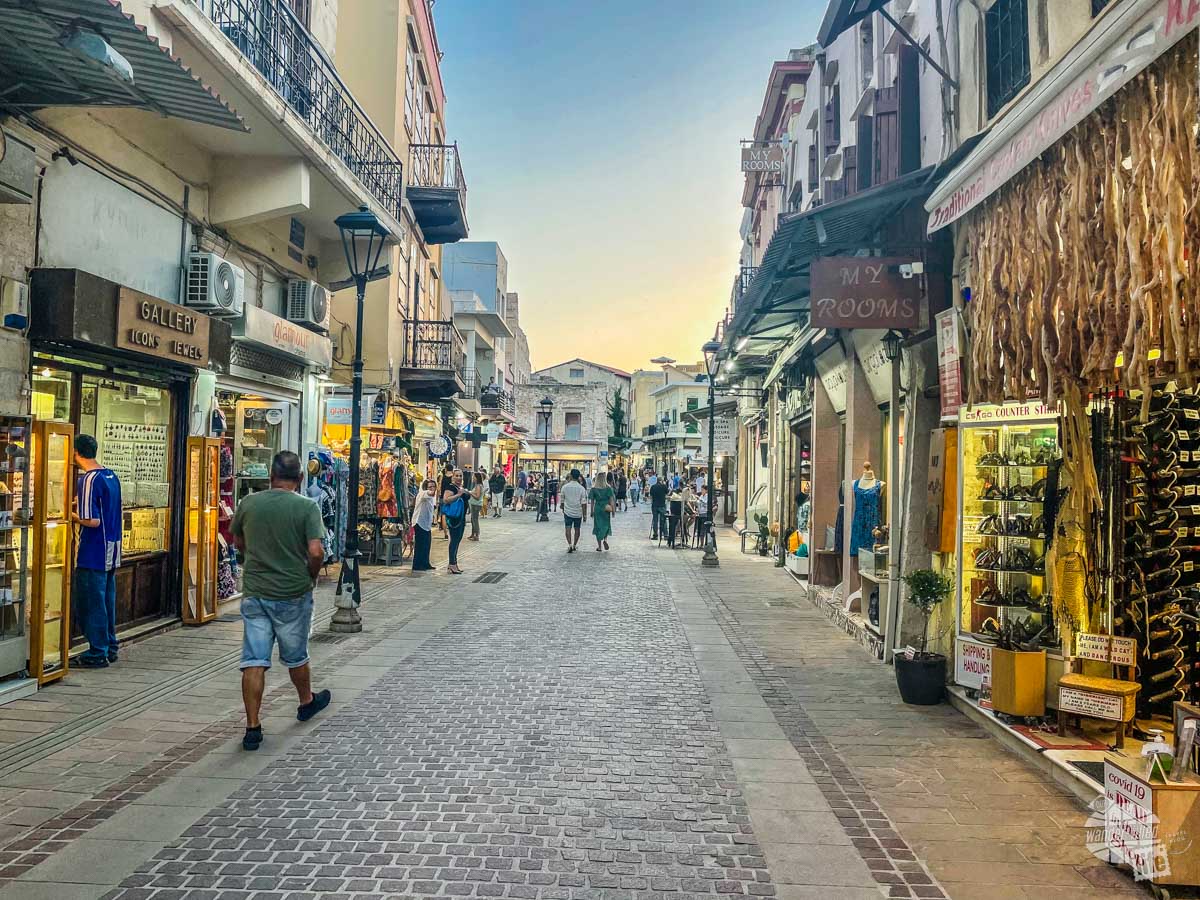
Additionally, you’ll find many signs, storefronts, menus, etc. are in English, though the Greek alphabet is used frequently, even for English words. Knowing the Greek alphabet (both upper case and lower case) will definitely make it easier to read signs, storefronts and other displays.
Overall, you should definitely learn a few Greek words but don’t fret too much about the language.

Mainland vs. the Islands
When visiting Greece, there are generally two big draws: the history and the beaches. You should definitely make a point to include time for both while you’re there.
You’ll find most of the popular historical landmarks on the mainland. In and around Athens, the Acropolis (home of the Parthenon), Delphi and the Temple of Poseidon are all must-see sights. In Greece’s second-largest city, Thessaloniki, you can learn about its history of Roman, Byzantine and Ottoman control.
Check out our guide to visiting Athens.
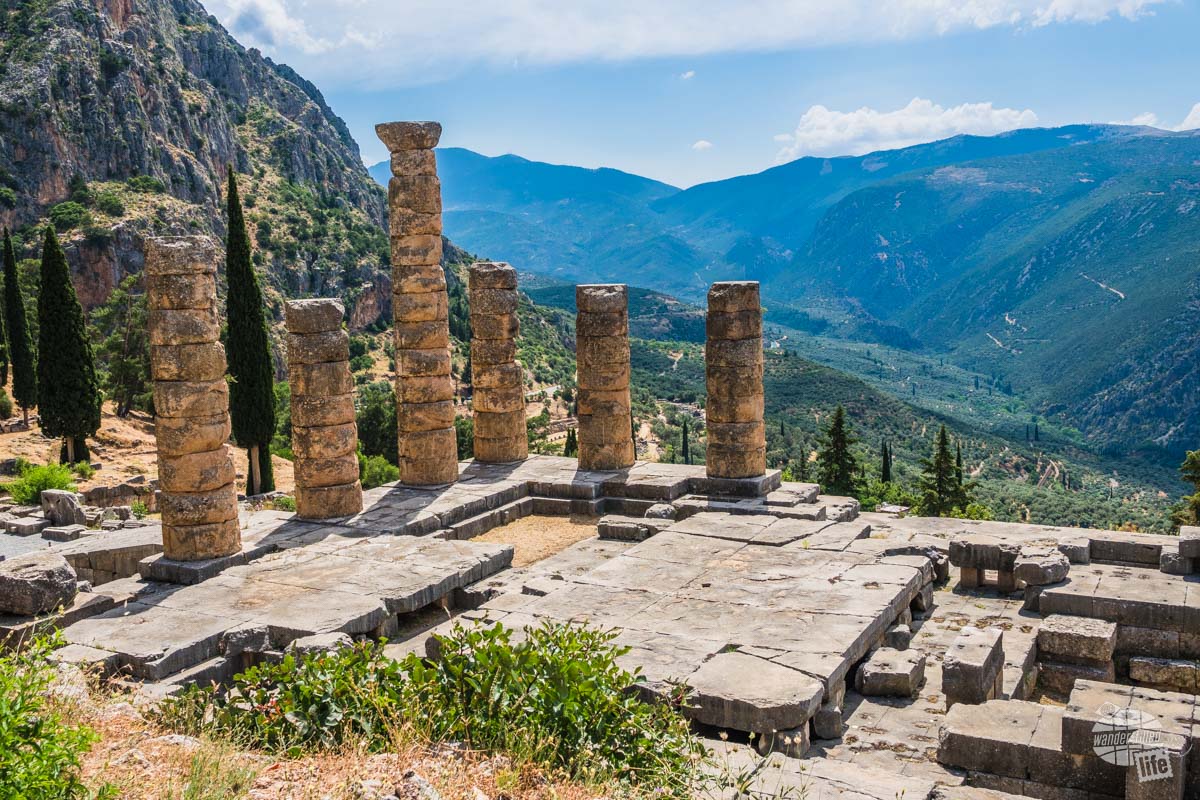
Of course, these large cities on the mainland also hold the majority of Greece’s population. Of the nearly 11 million people living in Greece, almost half of them live in the two most-populated cities of Athens and Thessaloniki.
If you want to escape the densely populated areas, head to the islands. But first, you’ll have to choose from the more than 200 inhabited Greek islands! The largest island is Crete, which we visited. If you’re picturing the iconic blue and white buildings, those are found on the Cycladic Islands. Two of the best-known of those islands are Santorini and Mykonos. Indeed, cruising around the Greek Islands would be a bucket-list vacation.
Check out Grant’s article on Crete.
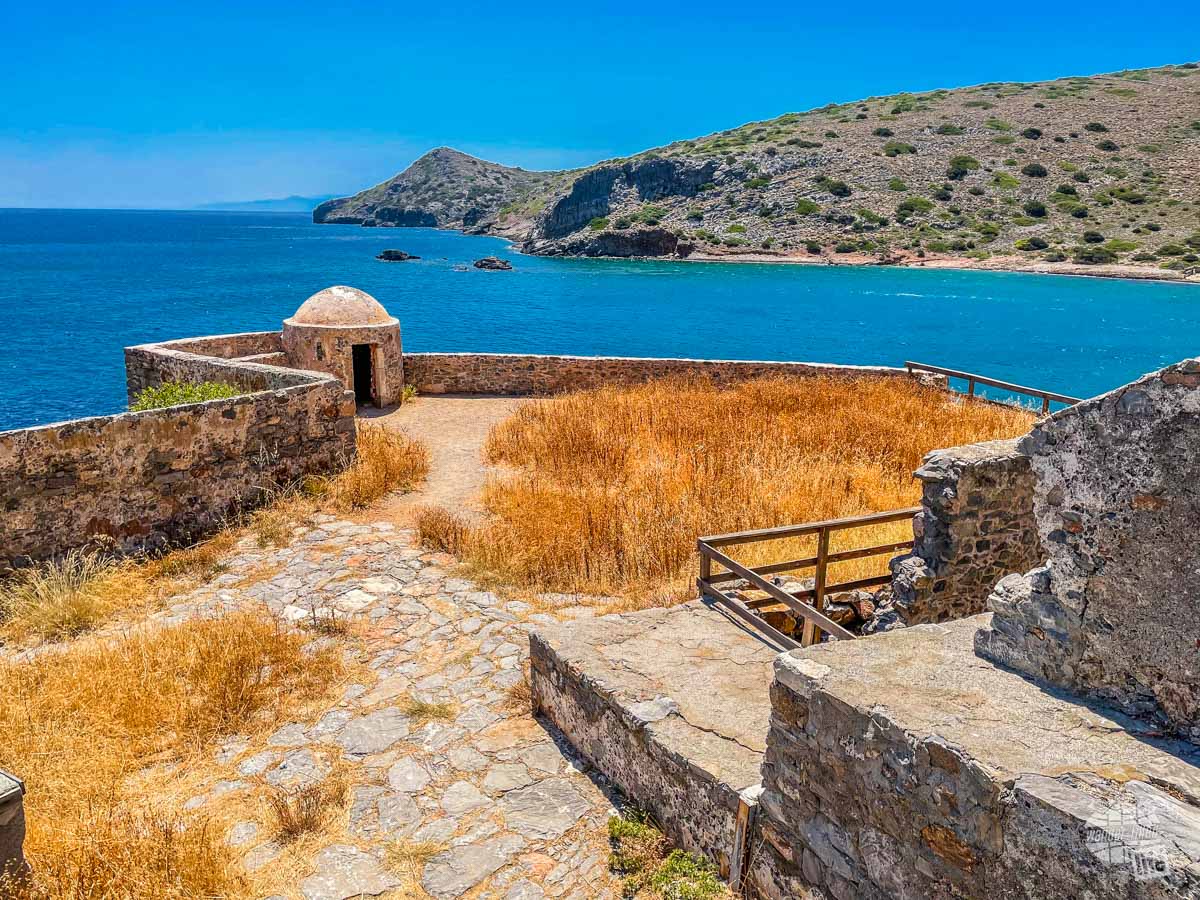
Of course, you’ll also find plenty of gorgeous beaches on the mainland and tons of history on the islands. Just be sure to allow time for both of these iconic draws of Greece.
Greece is Affordable
Again, without doing our own research on flights, hotels, transportation, etc. I really didn’t know what to expect in terms of prices. And I suppose that to some extent, I almost always prepare for high prices when visiting popular touristy areas. I have to say, we were pleasantly surprised by the prices in Greece.
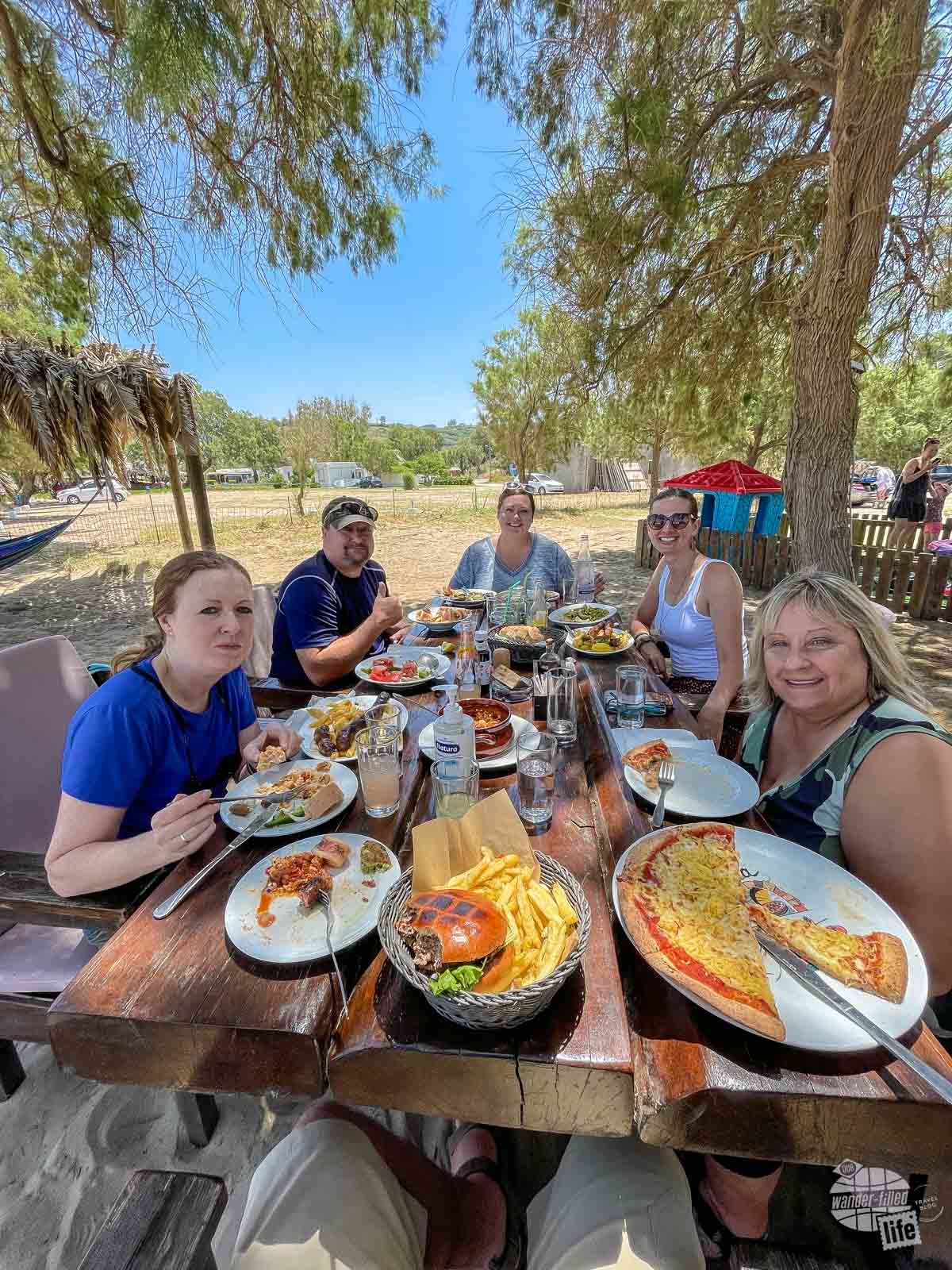
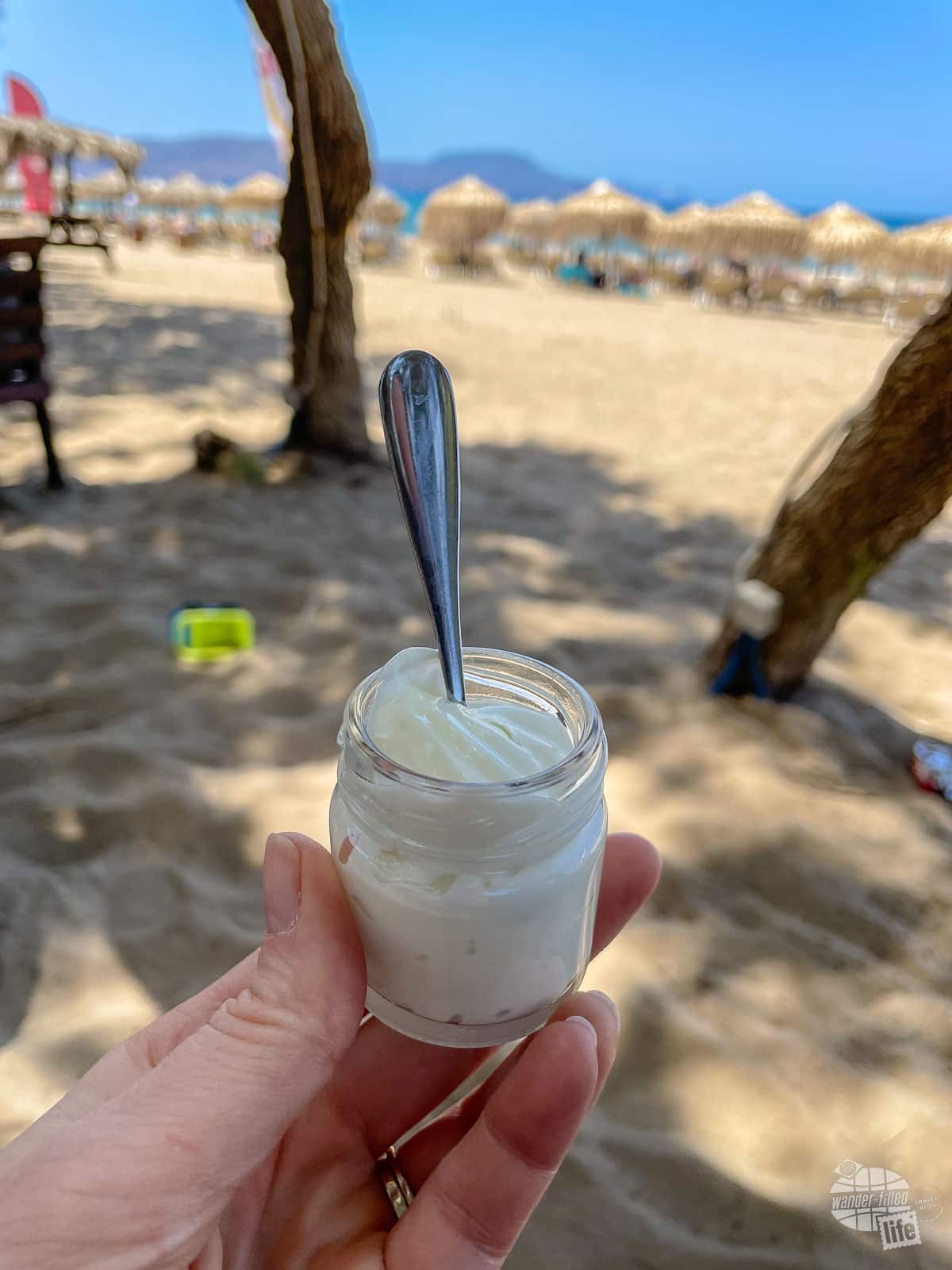
We found the prices at cafes, restaurants, shops and even grocery stores to be very reasonable. Throw in a favorable exchange rate between the US dollar and the Euro and we definitely weren’t complaining about prices.
A bottle of water will likely not be more than $1 and a coffee was roughly $2-3. Most of the meals we paid for were around $10 per person. Of course, we weren’t going anywhere fancy or ordering alcohol (remember, we were chaperoning a school trip). Still, we appreciated that even in the touristy areas, prices were usually a little less than what we find in the US.
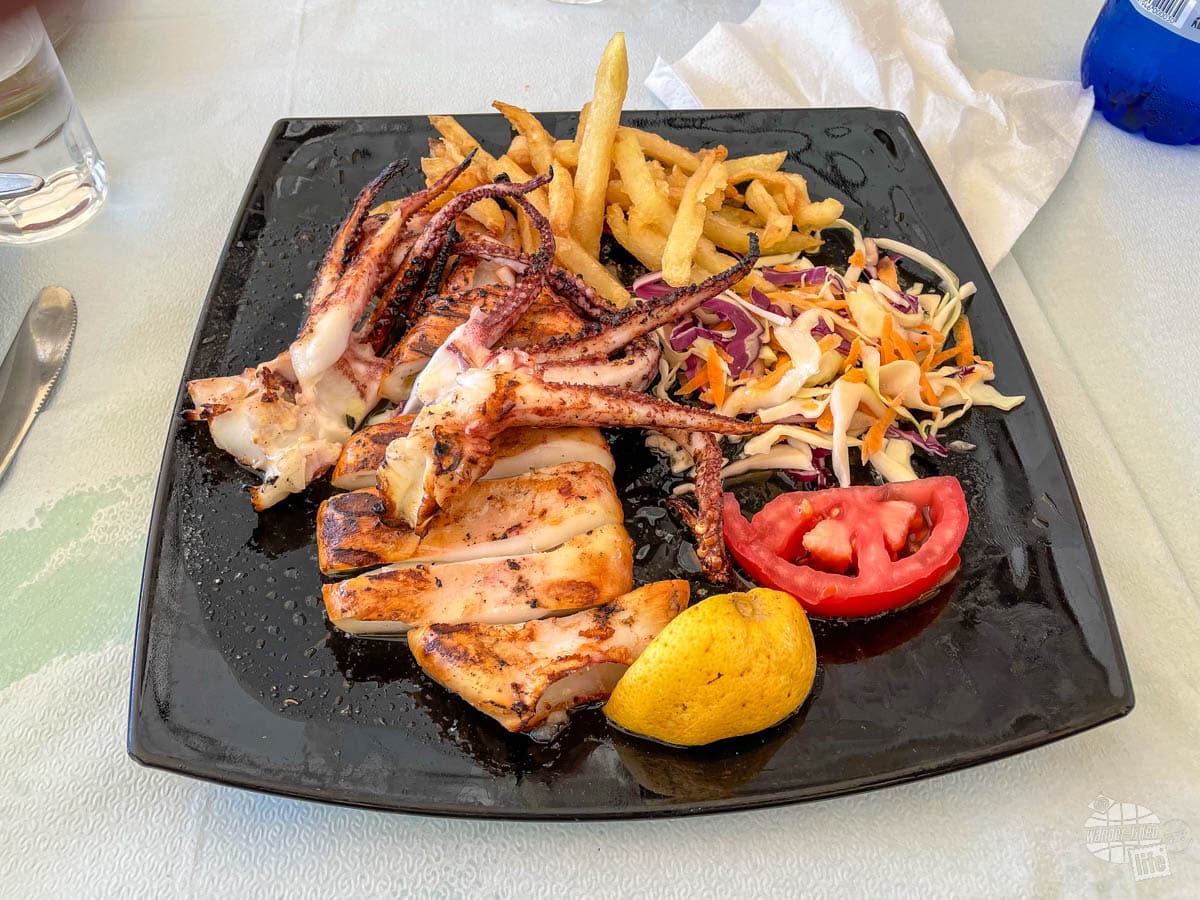
Don’t Put Toilet Paper in the Toilet in Greece
Ok, this is the big one. And I’m very glad that our tour guide explained this on our way to our first hotel. Apparently, the plumbing system in Greece is not all that good. Thus, only human waste should be flushed down a toilet.
In every bathroom we visited, there was a trash can next to the toilet. That’s where your toilet paper goes. Yes, all of it, whether it was for number 1 or number 2.
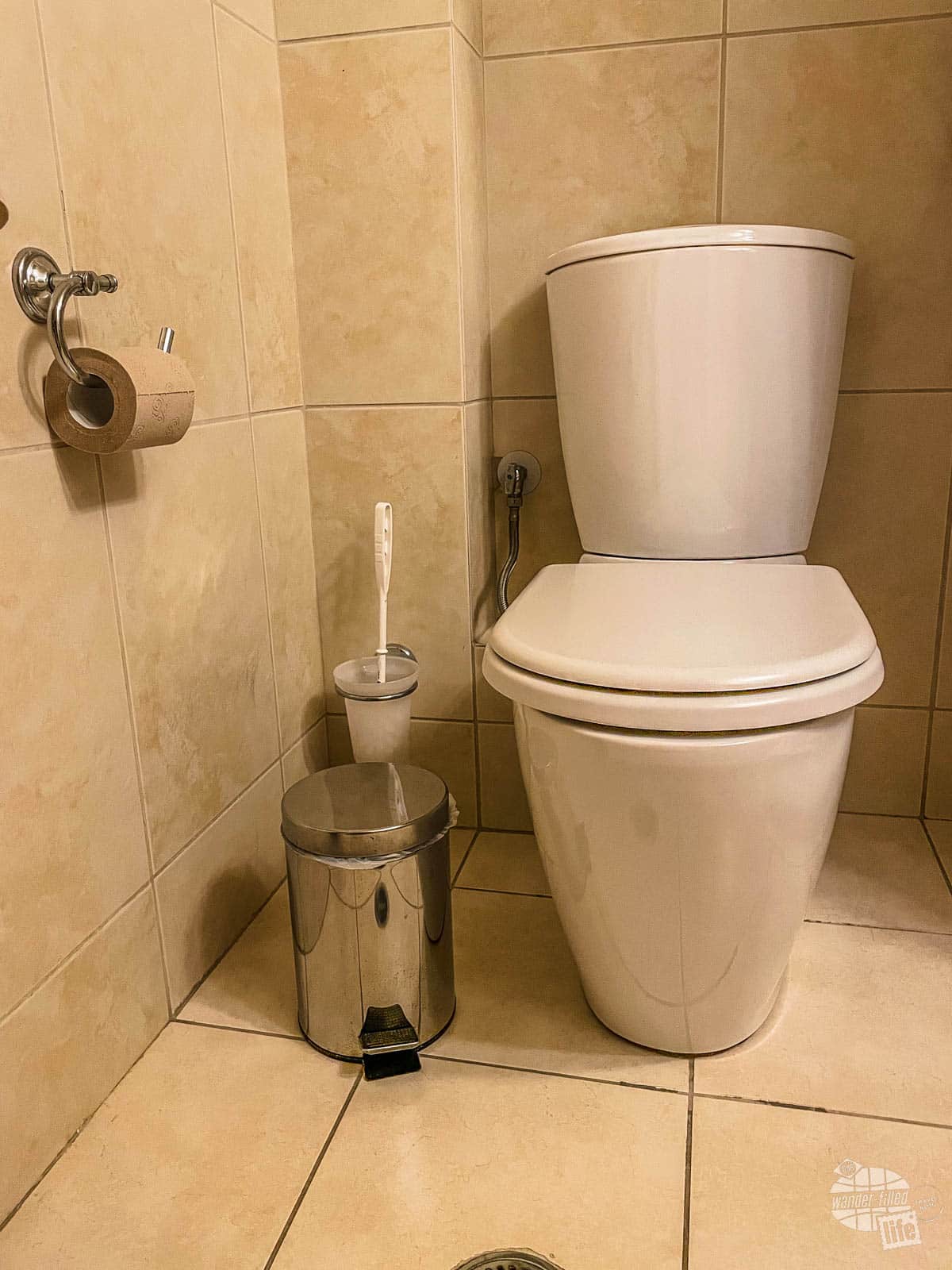
As our tour guide explained, as weird as it is to us that you don’t flush toilet paper in Greece, it’s just as weird to them that we do flush it in the US. It’s just the way things are. And, I suppose it is definitely better than dealing with the pipes backing up!
I’ll admit, I forgot the first couple of times. Or, I remembered but my muscle memory just threw the tissue in the toilet before I could stop myself. Thankfully, there were no issues with things backing up. Still, that was not something that I really wanted to test!
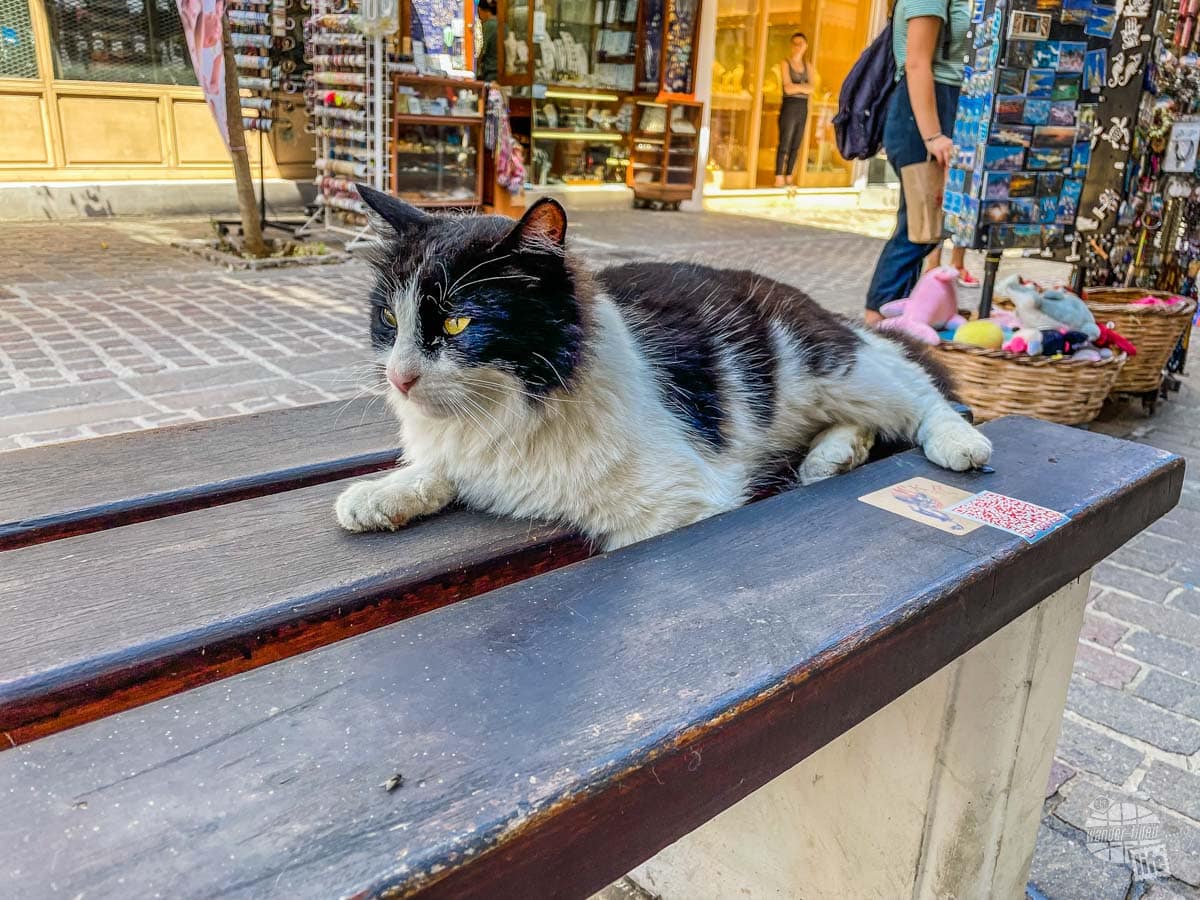
After a couple of visits to the bathroom, I retrained myself. In fact, after we left Greece I had to remind myself that it was actually ok to put toilet paper in the toilet again!
It may take some getting used to, but it’s really not that bad.
Bring a Reusable Bag
Carrying a reusable bag everywhere you go is not something that most Americans are used to doing. That said, I have seen more and more places moving towards not providing free bags, particularly in California and Hawaii. Personally, I love it, even if it is a little inconvenient.
In Greece, you’ll likely need to bring your own bag or pay for a bag at most stores. This is especially true at the grocery store and the Walmart-style general store. For us, it wasn’t a big deal because we almost always carry a backpack or other decent-sized bag when traveling. And, we weren’t buying a ton of stuff.
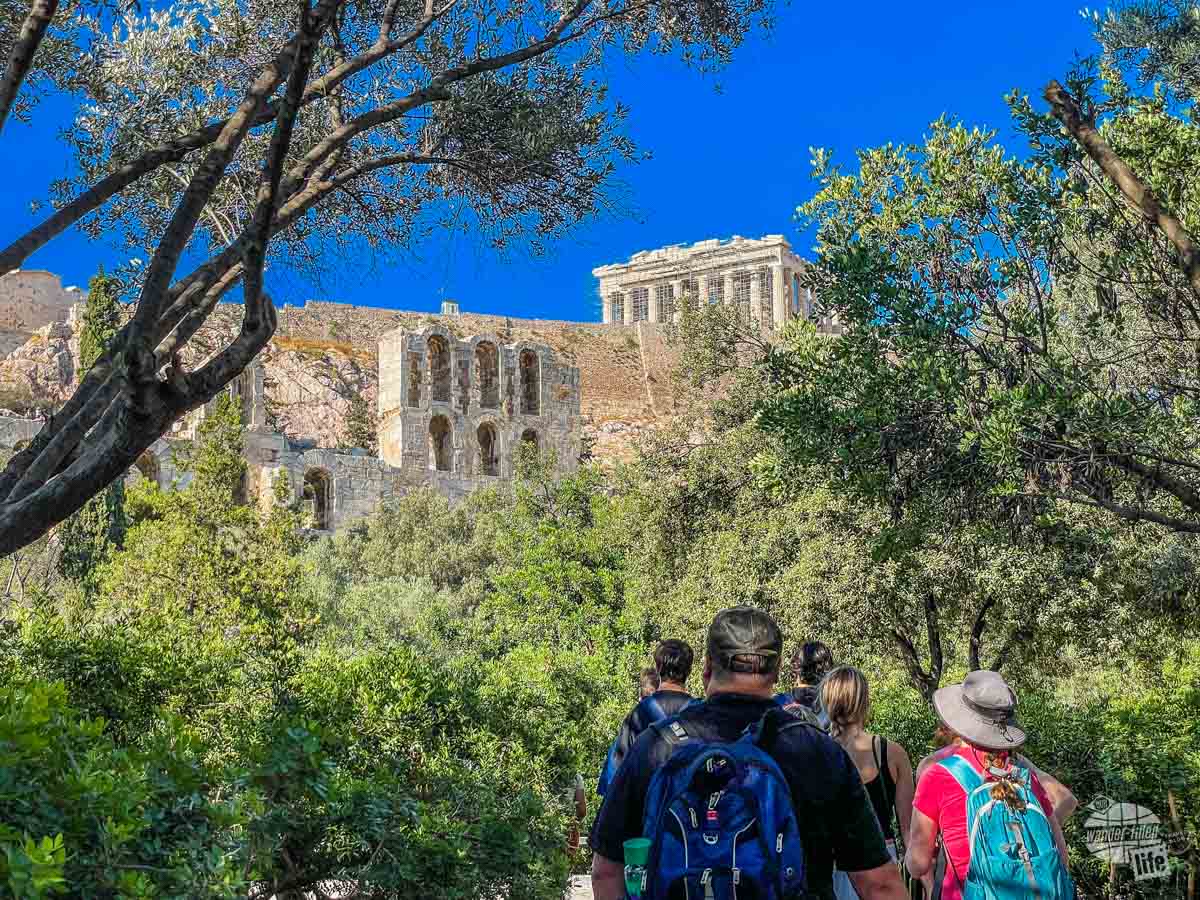
- WATER REPELLENT: The Eddie Bauer Stowaway Packable 30L Backpack is made from ripstop polyester and holds up to the rigors of daily use. The ultra-durable lightweight material is treated with StormRepel WR finish that sheds moisture, keeping your gear dry when weather is a factor.
- ORGANIZATION & COMFORT: The Eddie Bauer 30L backpack with lightly padded mesh back panel, backpack straps, and lumbar strap provides maximum comfort during extended use. This pack includes an interior sleeve and portal for a hydration bladder, as well as an exterior stretch mesh pocket with a daisy chain and two additional mesh side pockets for convenient organization and storage of water bottles and other essentials. “
At the touristy souvenir shops, you’ll likely be able to get a bag without any problems. But they’ll also appreciate it if you don’t need one.
I’m definitely learning to just carry a small, packable reusable bag pretty much everywhere. I figure that anything I can do to reduce trash and protect our environment is worth it.
Read our article on packable backpacks for hiking and travel here.
Getting Around Greece
In all but the biggest cities, you’ll probably want to rent a car. For a highly populated urban city, Athens really is not all that big and is fairly walkable. For those that don’t want to walk, taxis are plentiful. Additionally, there is a metro system, though it is notoriously slow, according to our tour guide. Still, you could probably get around Athens or other urban cities without a car.
If you want to head outside of town, though, a rental car will make it much easier. Public transportation just isn’t quite as developed or consistent as in some other European countries. There is a decent inter-city bus line but getting information on it can be difficult. And the train system is fairly limited.
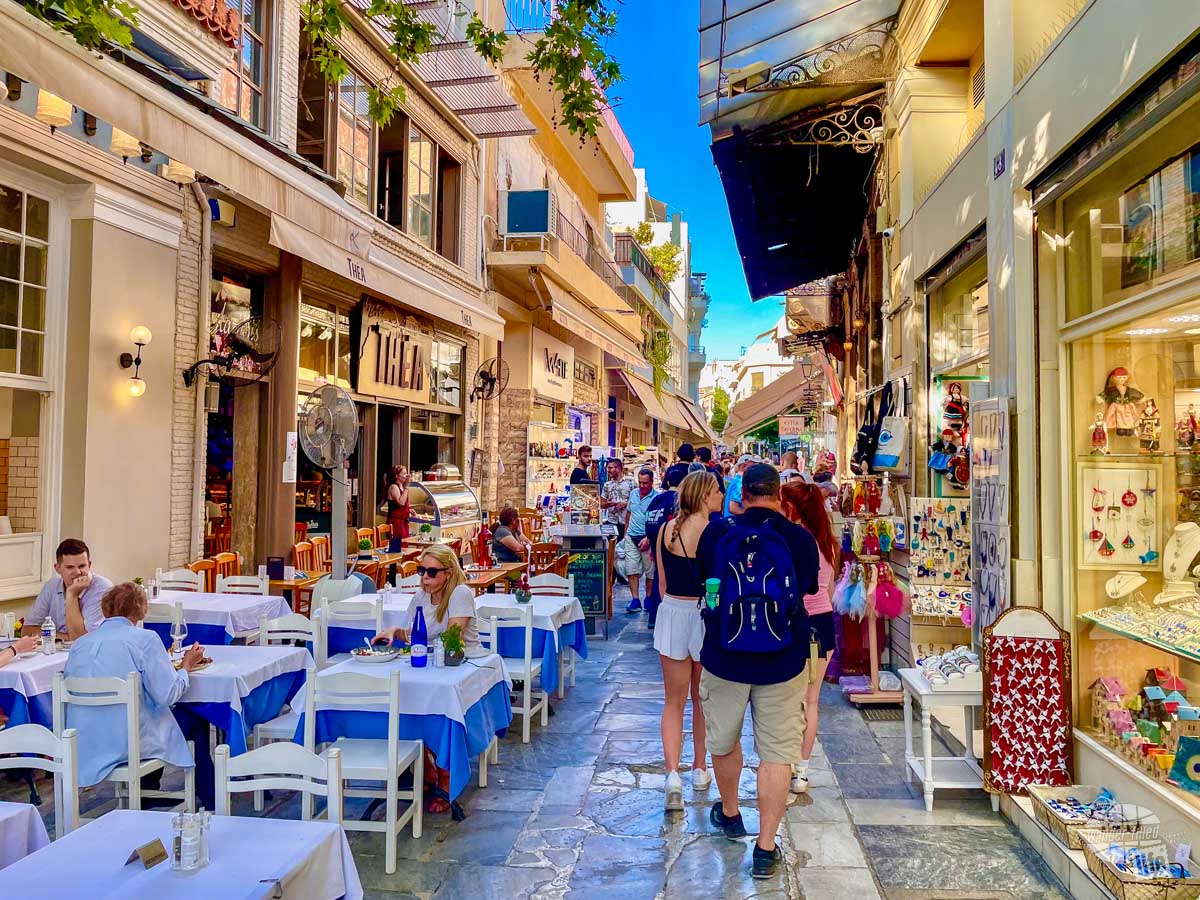
To get to the islands, there is a fairly extensive ferry system. Additionally, many of the islands can be accessed via plane from Athens or other cities, which is typically a faster way to travel between the islands.
On the islands, you might need a car, depending on where you are and what you want to do. Crete is large enough that having a car would allow you to easily travel between several different cities and enjoy the countryside. On smaller islands, you might not need a car, especially if you are just enjoying one relatively small city.
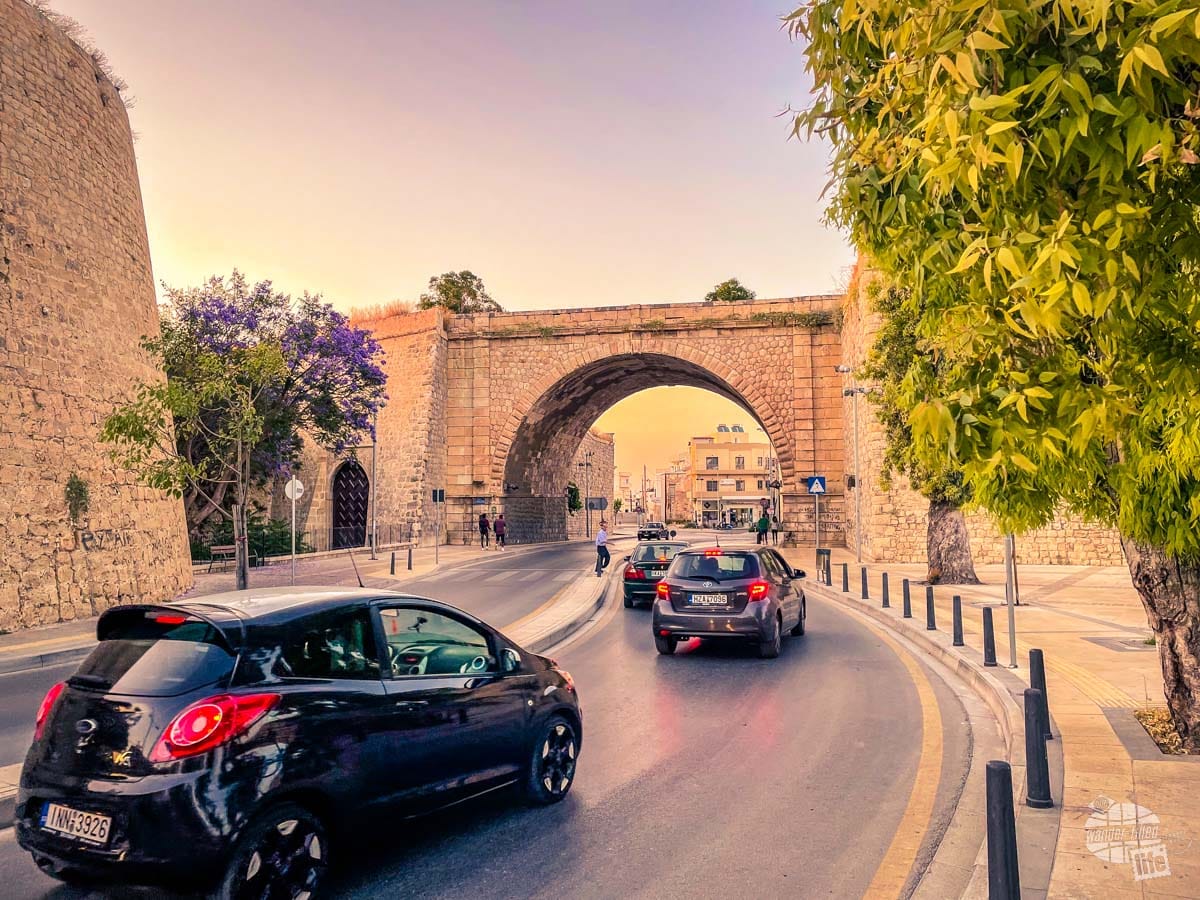
We did find that all of the cities we visited on Crete were very walkable themselves. It’s really just getting between the cities that might be difficult without a car.
Pro Tip: Make sure you have an international driver’s license before leaving your home state if you plan on renting a car anywhere overseas.
What to Expect at the Beach
Like many European beaches, quite a few of the beaches around Greece are very rocky. Of course, there are also some quite nice sandy beaches. Still, the sand can get blisteringly hot. Whether you are on a rocky or sandy beach, having a pair of water shoes or flip-flops would make walking much more comfortable.
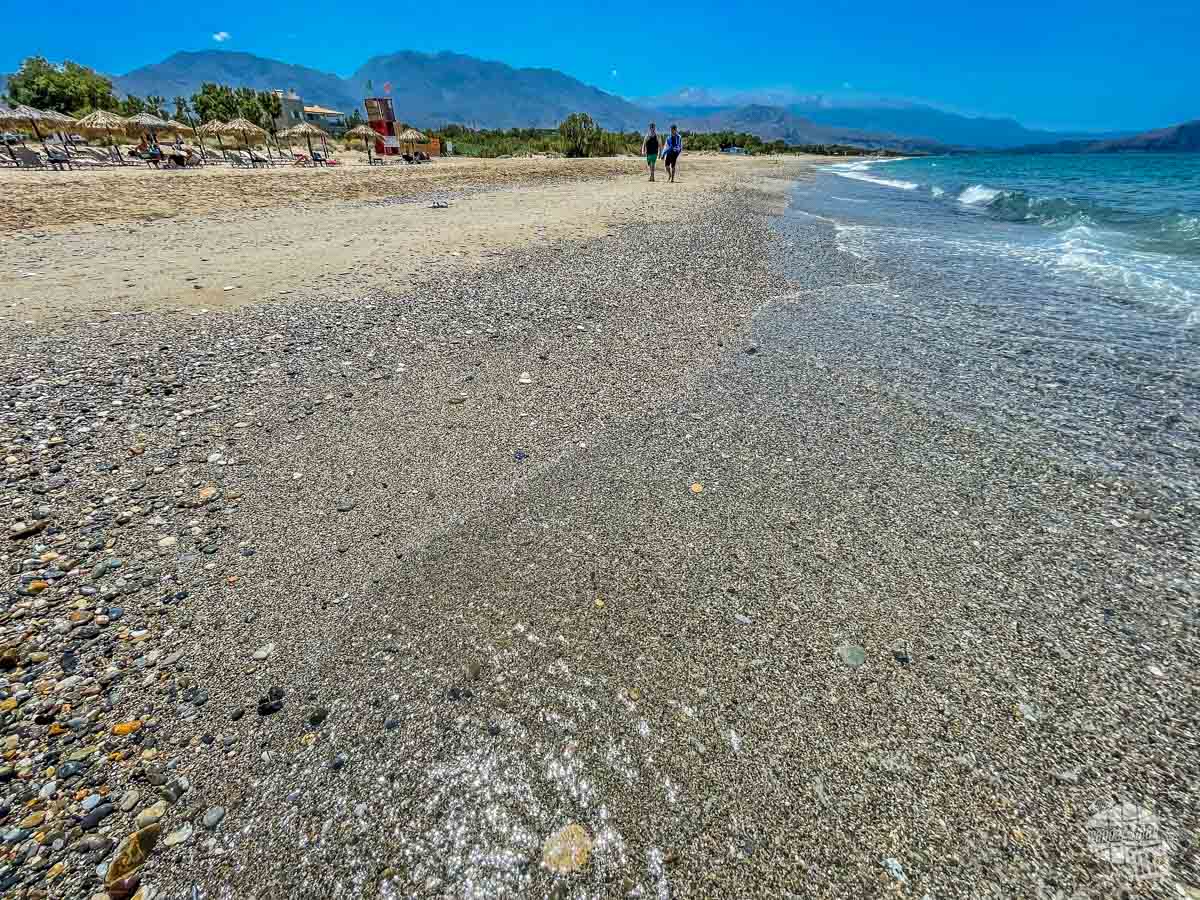
Depending on where you are, you might have to pay to enter a beach (about $15-20). In other places, you might have to pay for the use of a sun bed and umbrella. We visited a couple of beaches in front of a taverna (casual restaurant). At those, the sun beds are often free as long as you order food and/or drinks.
Overall, we found the public beaches to be on par with what you’d find at a nice resort in the US. For that reason, paying a small fee or making a point to order food seemed worth it.
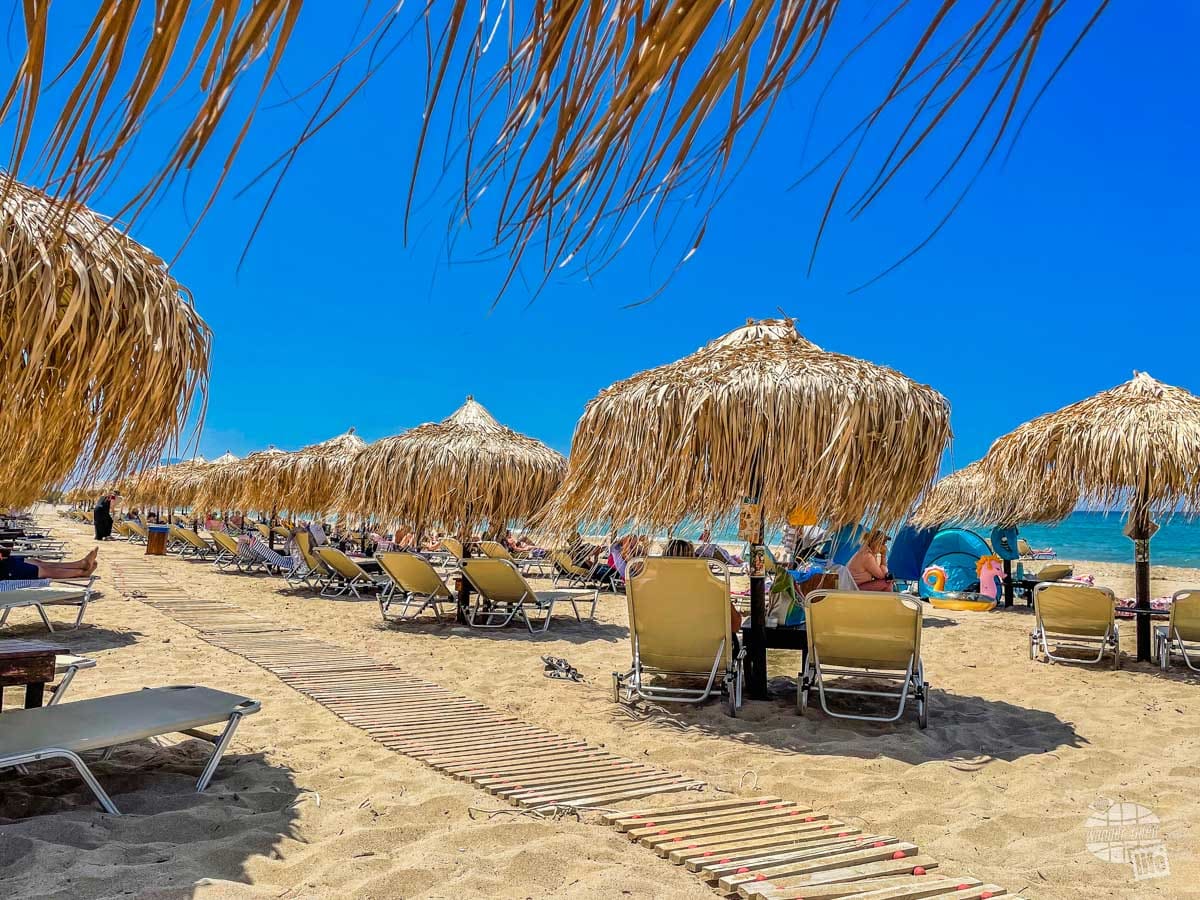
One other note: topless sunbathing is common in Europe so don’t be surprised if you spot a few topless sunbathers. That was a bit of a surprise for our students.
Expect Only In-Season Fruits and Vegetables
As a general rule, you won’t find a lot of imported fruits or vegetables in Greece. Instead, they rely mostly on in-season crops that are vine-ripened and fresh. Thus, you’ll see menus change with the seasons, depending on what is available.
In the US, we are used to finding just about any fruit or vegetable year-round. That means we might not always get it at its best. After all, it takes time to move from the field to the store. If that food has to travel a long distance, that’s taking away from its freshness.

For that reason, you’ll likely appreciate the bright, fresh flavors found in most Greek dishes. There’s just something about using fresh produce that makes everything better!
Discover a True Greek Salad
I suppose that it shouldn’t be a surprise that the American version of iconic dishes in other countries rarely is the same. That is particularly true for a Greek salad. The biggest difference: no lettuce.
That’s right, in Greece, your Greek salad will not have any lettuce. It’s just a blend of some of summer’s best vegetables: tomatoes, cucumber, peppers and onions. It’ll be topped with oregano, olive oil and a block of feta cheese.

Speaking of feta… that crumbly stuff we easily find in the US tastes almost nothing like authentic Greek feta. Good Greek feta cheese will be much less salty and more creamy than crumbly.
Despite the fact that I really don’t like tomatoes, I absolutely love everything else in a Greek salad. I think our trip to Greece definitely turned me into a Greek salad snob and I’m ok with that!
Historical vs. Modern Architecture
In Greece, you’ll find an interesting mix of historical and modern architecture. But, one thing that’s missing is Renaissance architecture. I suppose that’s because of the storied history of the country and its years of control by various different groups.
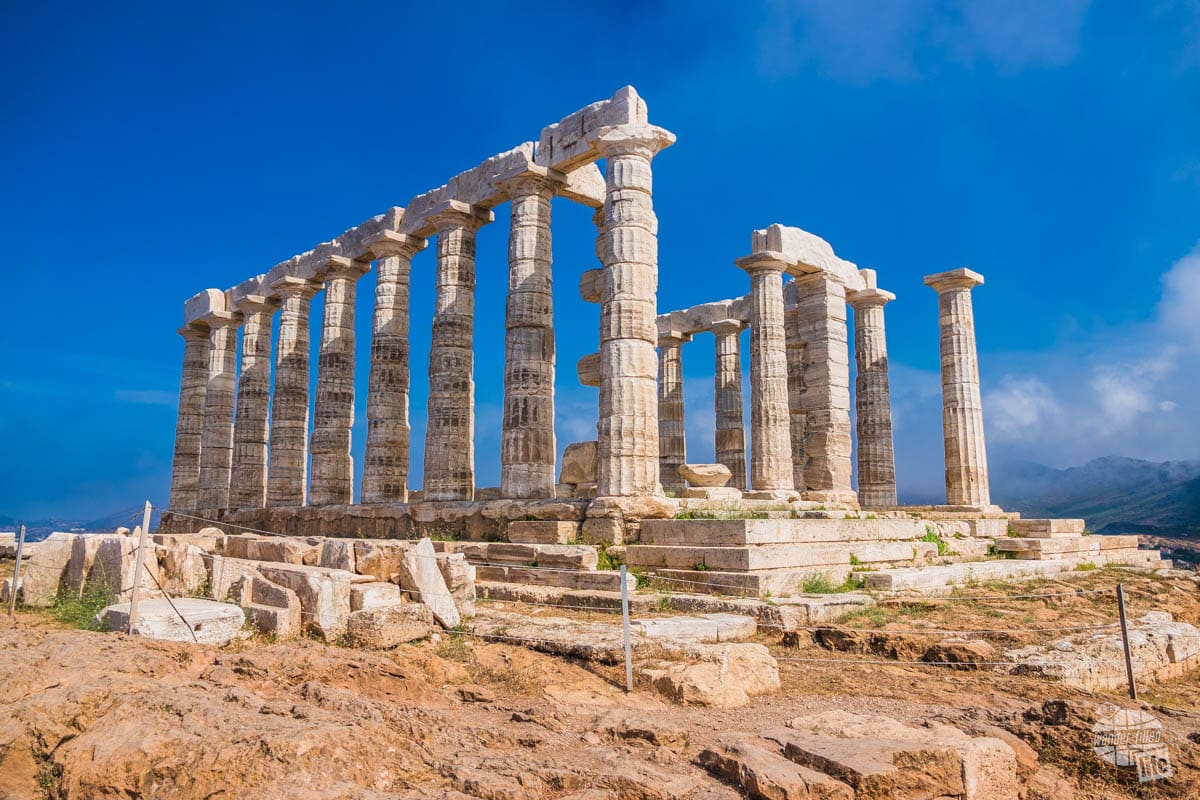
There are many ancient ruins all around the country. And there is plenty of new, modern design, especially in the big cities. But you don’t find a lot of the fancy cathedrals that are prevalent in Italy or France. It’s more of understated beauty.
This is not a bad thing, it’s just different from our other travels in Europe.


Final Thoughts on Visiting Greece
While our trip to Greece was fantastic, it was definitely too short to learn everything there is to know about Greece. Still, with a little over a week in and around Athens and several different cities on Crete, we experienced a lot. Our goal is always to share our experiences to make your travels easier and more relaxing.
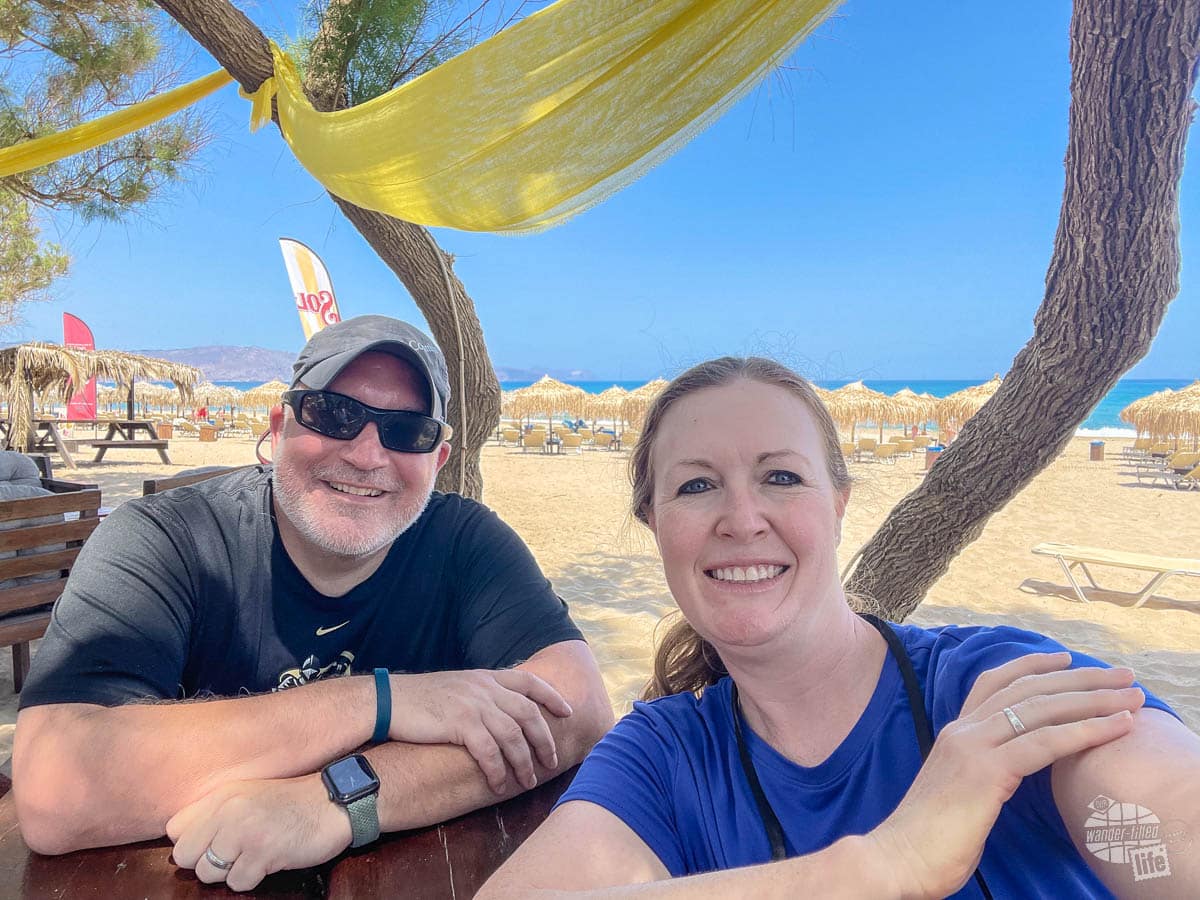
Greece has a long and varied history that is easily seen and experienced all around the country. It’s also home to some gorgeous beaches and picturesque small towns. Hopefully, our tips and advice will help you make the most of your visit to Greece and enjoy all that this wonderful country has to offer.
Travel Resources
What do you use to find a flight?
We use Skyscanner to find deals on flights. Skyscanner has a great interface and compares tons of airlines for the best pricing and routing. That said, it does not always have every airline and some airlines will have better deals on their website. Still, Skyscanner is a great place to start.
Click here to search for a flight.
What do you use to find a hotel?
We typically stay at Hilton properties, so we use the Hilton website. You can find good Hilton Honors discounts or AAA discounts for a hotel there. We make great use of our free night certificates from our Hilton Honors American Express.
Click here to book a Hilton property.
If there are no Hilton properties available, we use TripAdvisor to read reviews and book the hotel. We find we can get the best price that way.
Click here to search for a hotel.
We recently partnered with Stay22 to add interactive maps to each of our destination posts. This will allow you to see a plethora of hotels and vacation rentals all in one responsive map of the area.
What if I need more space than I can get at a hotel?
We use Vrbo for the times when we have rented a cabin for a weekend getaway, like this cabin in Townsend, TN, or needed to rent a house for a large family vacation. We had a great experience with them in terms of refunding deposits when COVID hit and will continue to use them.
Click here to search for a vacation rental.
Who do you use for rental cars?
As a general rule, we book with Hertz for rental cars. We have had nothing but good experiences with them. Plus, we really like unlimited mileage and not worrying about crossing state lines. We have even rented from Hertz overseas in both Slovenia and Croatia.
Click here to book a rental car.
How about booking a cruise?
We have found some amazing prices for booking a cruise through Cruise Direct. We have saved a lot of money on our cruises compared to what we found elsewhere, making a last-minute Bahamas cruise even cheaper.
Click here to book a cruise.
What if I want to rent an RV?
We highly recommend Outdoorsy for RV rentals. We rented a camper van for a week to visit Rocky Mountain National Park for the elk rut and Custer State Park for the Buffalo Round-Up and had a blast. The program was easy to use and we really enjoyed the freedom of having a camper van for that trip.
Click here to rent an RV.
What do you use for booking tours?
We don’t often book tours. Typically, we like to do stuff on our own. That said, there are some experiences you can’t have any other way. So, when we do want to book a tour, we always check Viator first.
Click here to book a tour.
Do you use anything to get discounts on the road?
We make extensive use of both Good Sam and AAA on the road. Good Sam is normally regarded as a discount card for RVers at campgrounds and Camping World but anyone can use the 5 cents off a gallon at the pump at both Pilot and Flying J.
Click here to get a Good Sam membership.
We have had AAA as long as we have been married and it has more than paid for itself in discounts at hotels, aside from the peace of mind of having roadside assistance. Add in paper maps and the ability to get an international driver’s license and it is more than worth it for any traveler out there.
Click here to get a AAA membership.
